Build Design Systems With Penpot Components
Penpot's new component system for building scalable design systems, emphasizing designer-developer collaboration.
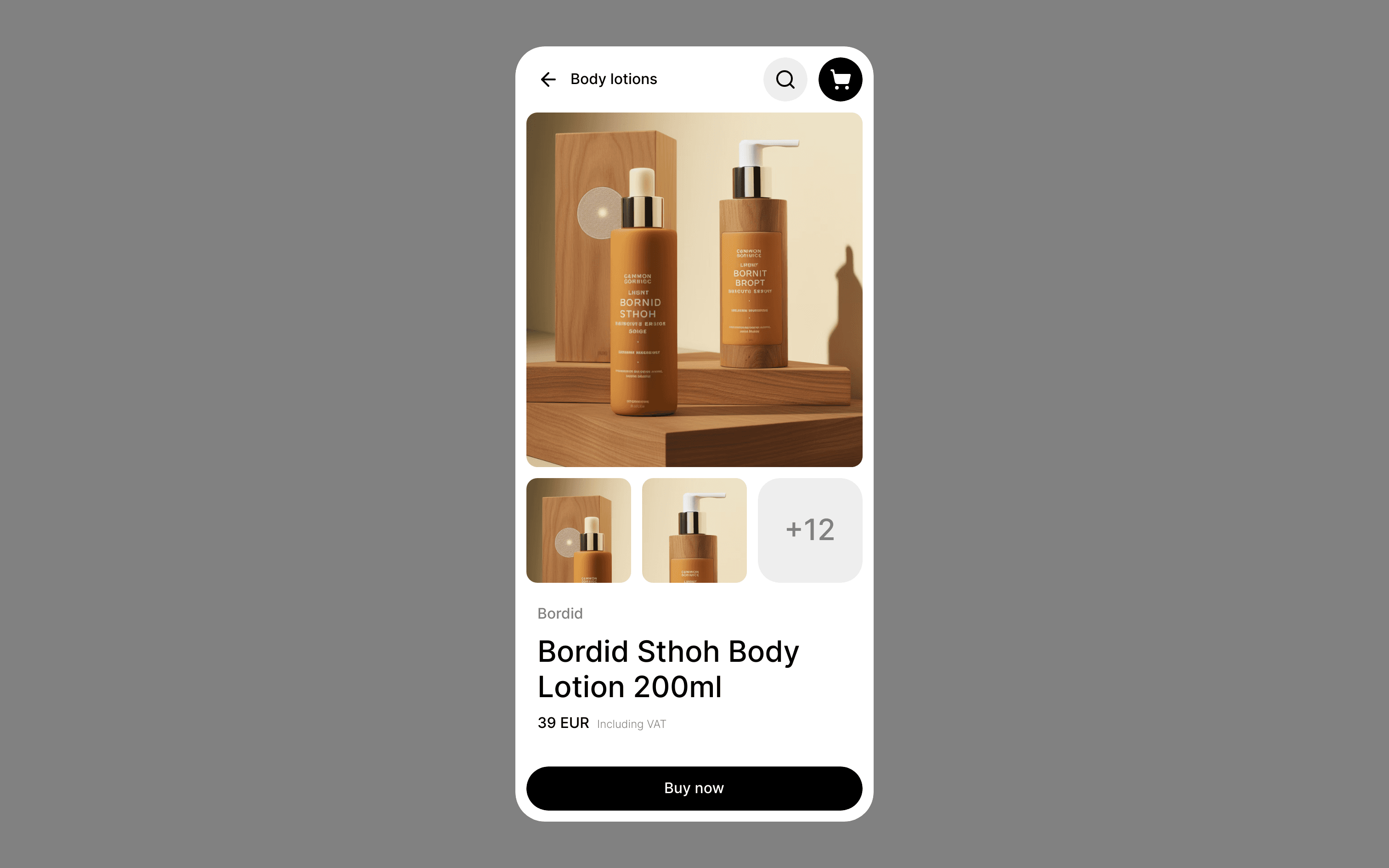
UX Planet — Medium | Guy Ligertwood
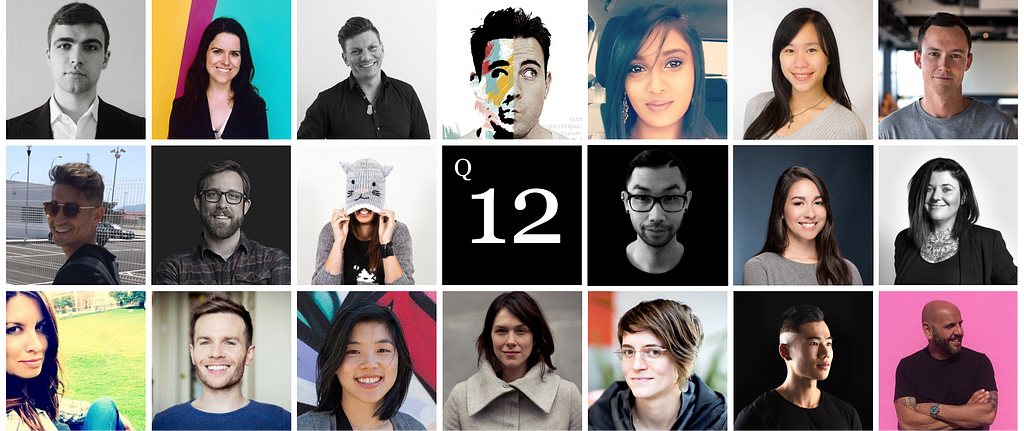
Learn From twenty experienced designers as we go deep into one question every week.
Intro Article: Get to know the designers
Question 1: How did you get into design?
Question 2: How your typical work day?
Question 3:What things you wish you knew when you started in design?
Question 4: What are the best ways for you to stay inspired?
Question 5: What do you want to see in my UX design portfolio?
Question 6: 5 important questions you need to be able to answer in the UX interview
Question 7: 5 design books every UX designer should read
Question 8: Imposter syndrome: Your experience with it as a designer and tips to manage it
Question 9: 5 non designer books every UX designer should read
Question 10: What’s the best design advice you’ve ever received?
Question 11: 5 things that make a great UX designer
Question 12: (you’re here) What have you struggled with in your your career and how did you overcome it?
“I look for people that are more aligned with my own values and goals, and work with them as much as possible. That’s made me happier and much more productive day to day.” (Graeme)
“At the beginning of my career receiving feedback was intimidating. Nowadays, I LOVE getting feedback. “(Paola)
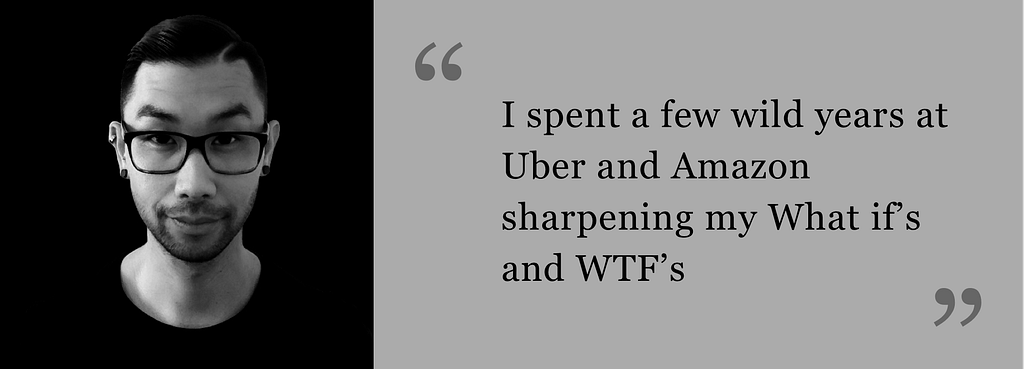
(*Since we started the series Simon has moved from Medium to Google to work on Google News)
Australian 🇦🇺
I have mostly struggled with over-working, stress and feeling overwhelmed. Read onto the next question.
simonpan.com or on twitter

(*Since we started the series Stephanie has moved from Facebook to Cruise Automation to work on self driving cars)
American 🇺🇸
I can have a really hard time understanding how to preserve my energy.
At 22 years old I’ve ended up in some pretty high pressure environments — as much fun as working on VR and self-driving cars has been, sometimes I’ve found myself over the edge before I’ve even realized it.
The best thing for me has been to get better at asking for help (and maybe force myself to take vacations).
American 🇺🇸

Formerly Product Design Manager at Google, Mountain View
Australian 🇦🇺
I’m going to be super transparent here, and maybe point to an elephant hiding in the room.
Our job as UX designers is to add value and make user experiences easier, faster, better. Why do we do that? Ultimately we want to improve people’s lives right? We want our customers to be happier, healthier, less frustrated, less upset.
After years of working on planet scale products, I’ve started to see a pattern. Most of our products are designed to do one thing. Increase engagement and decrease churn. And we measure our success in a very inhuman way.
We are all walking around like zombies staring down at our attention grabbing slot machines. We feed them with our time and attention and we never win. We teleport into the comfort and safety of our phones, at the expense of being present in our dirty, messy realities.
And as a consequence, we are more socially isolated and emotionally disconnected than ever before in our history.
Good designers ask “WHY” for a living, and we try to get to the core of the problem so we can truly solve it.
I’ve started to ask “Why does this product NEED to exist?” and I’m finding it harder and harder to come up with a good answer, especially if my goal is to make people’s lives tangibly better.
I struggle with this because I built a career making products, and if I’m super honest with myself now, looking back, I’m not exactly sure that any of them made the world a better place.
My website or on Medium
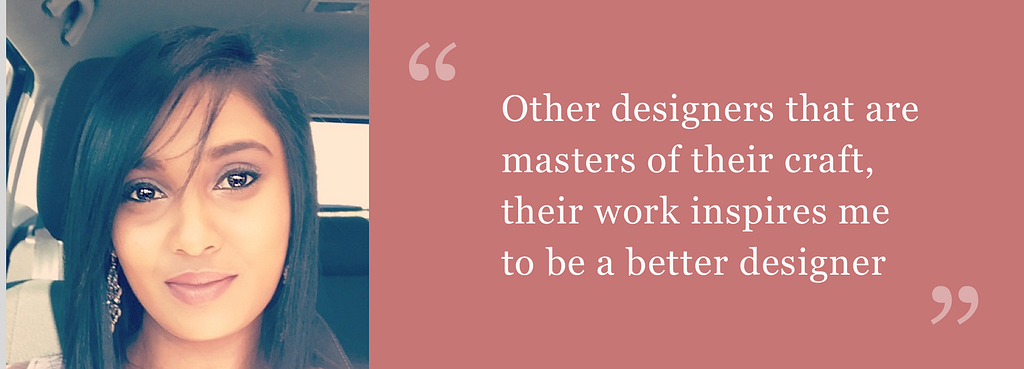
(*Since we started the series Nirissa has moved from Standard Bank in South Africa to Product Designer at Majid Al Futtaim in Dubai)
South African 🇿🇦
There have been many struggles in my career as a designer, but there is one particular situation that stands out for me. When I decided to transition from a UI designer to a UX designer, it happened organically. For me it was an easy switch, and the learning curve was manageable. I realized that I have an equal passion for both of these skill sets, I knew that going forward I could not do one without the other.
The struggle for me came in when I was applying for jobs at the time. I found that potential employers were trying to put me into either a UI box or a UX box. I couldn’t find a company that would allow me flex both skills within the same project.
I suppose it was due to the fact that UX was relatively new at the time and employers weren’t sure of what to do with someone like me. Or perhaps it could have been that they had particular roles to fill within the team and wanted the employee to be focused in one area.
At the time it seemed as though if I was employed as a UI designer, my colleagues would not take my UX opinions seriously, and if I filled a UX designer role, my colleagues would not take my UI suggestions into consideration. I found this to be rather frustrating at times.
After searching long and hard, I found a company that allowed me to do both UX and UI within the same project. I had support in both areas from design leads, developers and project managers. This team gave me the freedom to grow as a designer, and I overcame the feeling of being trapped in a singular role.
It took some time to find the right fit for me but I’m glad that I did not settle. Doing both UX and UI allowed me to push myself to refine my skills in both areas. I now know that there are companies out there that will give me the opportunity to be myself, it is just a matter of finding them.
My Linkedin
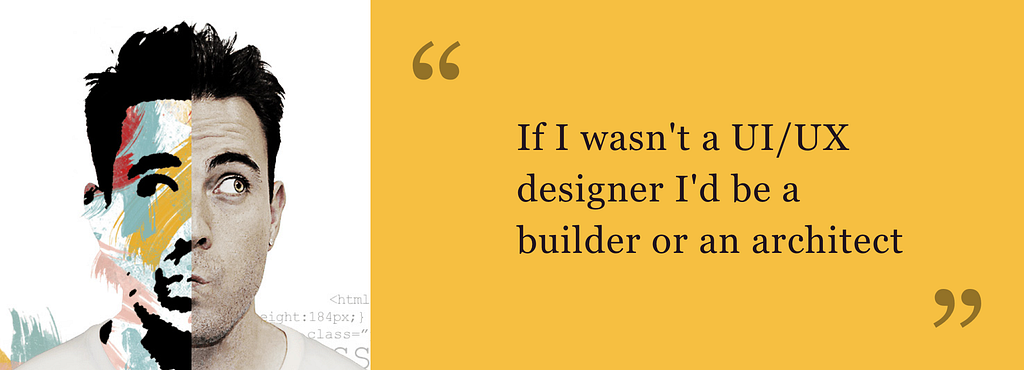
Australian 🇦🇺
I’m a bit of a perfectionist with most things in life, including my design work. It can actually be a very inefficient way of working as I’d often procrastinate over small details, when it would have made more sense to focus on the big picture.
I’m often not 100% happy with my work, even if it does the job it’s supposed to do. I think it’s a matter of concentrating on the problem that needs solving, coming up with a solution that works (even if it’s not perfect), then iterating on that solution over time.

American 🇺🇸
I think a lot about how much I should be promoting myself and my work. I’m not talking about sharing work with your team, or getting feedback. I’m talking about the tweets, articles, conference talks.
One one hand, self-promoting can have tremendous value. Having a good reputation or a strong network can create opportunities in your career. I often worry I’m missing out by not doing enough. But it also takes time away from doing the actual work.
The way I check myself on this is to be intentional about the goal. Before firing up social or writing something, I try to stop and think: Am I providing real value to others? Is this in service of a goal I’ve set for myself or my family?
If I can’t identify the goal, I have to acknowledge it might be ego kicking in. It’s tempting to seek validation from others — that’s totally natural. But I’ve found that it can also be a distraction or an easy way to procrastinate. Whenever possible, I try to refocus that energy on shipping something I’m proud of.
hugg.in or I’m @bhuggins on Twitter and Instagram
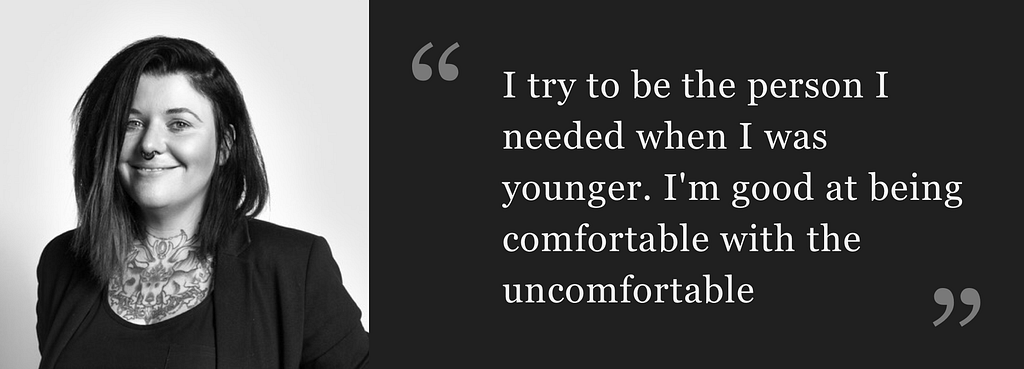
Australian 🇦🇺
Until quite recently, I had a love-hate relationship with design.
Growing up in advertising, I associated the D-word with bottom-feeder tasks and executing orders dished out by art directors and writers (which is why, for a while, I wanted to be one of them).
I wasn’t proud of being called a ‘designer’ and I did everything in my power to become a ‘creative’. Although I made my ambitions known, ‘creative’ never stuck. I blamed myself of course, because obviously I wasn’t creative enough.
I nearly gave up on the whole thing a few times, but I always found my way back to solving problems and making things.
Eventually I realised the reason people called me a designer because I was one. My only regret is that I didn’t embrace it sooner.
My Linkedin

American 🇺🇸
Early on I struggled with trusting my own instincts. Even if my gut told me otherwise, I would follow the lead of a more experienced team member without question.
After a few situations where my initial instinct proved to be right, I realized that my value as a designer was to question things, including other people, when something didn’t feel right.
Only then would we be able to uncover solutions that truly fulfilled a need.
My Twitter

Russian 🇷🇺
Fear of failure. When your solution/product/idea isn’t working and other people (stakeholders and your team) understand that. I think it’s an important step in designer’s career to embrace failure.
Being flexible and learn from your failures is essential for designers.

Nationality: Peruvian 🇵🇪
At the beginning of my career receiving feedback was intimidating. Nowadays, I LOVE getting feedback.
I consider it a gift that people are willing to give their time to considering a problem and questioning the solution.
What I found made the biggest difference in this switch is trusting the people who are giving feedback. When both parties are on the same page as to the outcome of the feedback session, the time together becomes very productive and the resulting solution much stronger.

Italian 🇮🇹
The main challenge and at the same time the beauty of this career is to be able to deal with different opinions and personalities.
The only way to overcome different opinions is to not fall in love with your work and use data dissipate ambiguities.
My Linkedin

British 🇬🇧 and recently Australian 🇦🇺
I recently struggled with going remote, as I especially missed the collaborative nature of working alongside other designers.
To overcome that I’ve become more deliberate in the way I ask for feedback, more open about my schedule and thought process, and more intentionally collaborative with my team and designer friends (it’s scheduled now).
My work at buzzusborne.com, my Twitter, my writing on Medium and my resume on Linkedin
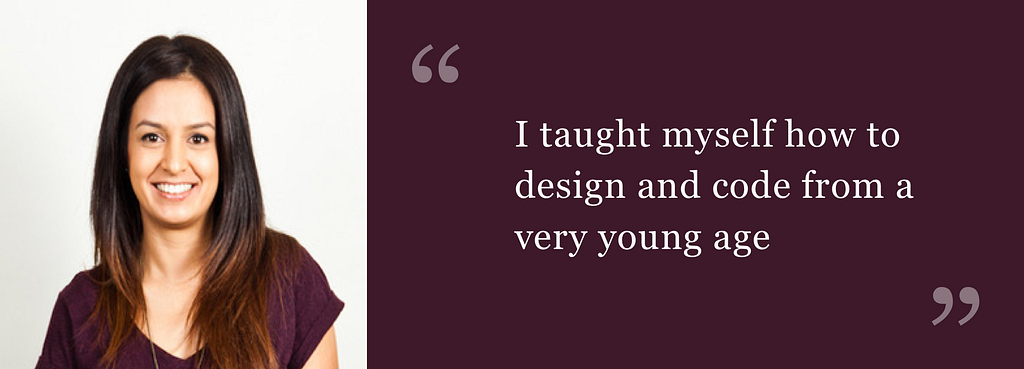
Australian 🇦🇺
I have long struggled with confidence. I can spend hours second guessing my ideas instead of trusting my instincts and skills. I keep much of my work to myself even if I know it is worth sharing.
I think a lot about design and its relationship to the state of the world and struggle to vocalise those thoughts. I wouldn’t say that I’ve totally overcome it, but I have gotten far better.
There are two things that have helped with this:
My Twitter and also on my Dribbble for haphazardly timed insights into my work.

British 🇬🇧
In my career as an employee, I struggled with company hierarchy and shared goals.
When you’re not interested in corporate ladders because you have your own mission, working with people who are happy to compete against you for higher ranks can get frustrating (especially when you’re trying to work with them).
To solve this one, I look for people that are more aligned with my own values and goals, and work with them as much as possible. That’s made me happier and much more productive day to day.
My Twitter

Taiwanese 🇹🇼
Early on in my career, I often experienced the tension between design and development.
Sometimes I came up with something I thought was super creative, only to feel rejected and deflated when developers told me it would take too long to implement. I couldn’t wrap my head around why developers couldn’t just follow the “exact” design.
Not until I began to learn programming, did I realize how ignorant I was.
For example, a sleek animation I make in After Effects might take developers a week to implement. Even that, the end result might still be unsatisfying due to the limitation of the technology.
Learning programming has helped me see the fuller picture and empathize with developers’ work. As a result, I’m able to design “working” interfaces and my designer-developer communication has definitely improved.
My Medium
“After a few situations where my initial instinct proved to be right, I realized that my value as a designer was to question things, including other people, when something didn’t feel right.” (Audrey)
“The main challenge and at the same time the beauty of this career is to be able to deal with different opinions and personalities.“ (Alex)
Read the other articles in this series
Intro Article: Get to know the designers
Question 1: How did you get into design?
Question 2: How your typical work day?
Question 3:What things you wish you knew when you started in design?
Question 4: What are the best ways for you to stay inspired?
Question 5: What do you want to see in my UX design portfolio?
Question 6: 5 important questions you need to be able to answer in the UX interview?
Question 7: 5 design books every UX designer should read
Question 8: Imposter syndrome: Your experience with it as a designer and tips to manage it
Question 9: 5 non designer books every UX designer should read
Question 10: What’s the best design advice you’ve ever received?
Question 11: 5 things that make a great UX designer
Question 12: (you’re here) What have you struggled with in your your career and how did you overcome it?
Clap 👏 👏 👏 if you enjoyed this article, so others can find it
Comment 💬 if you have a question you’d like to ask the designers
Follow me Guy Ligertwood to read all the articles in the series
What Have You Struggled With In Your Career And How Did You Overcome It? was originally published in UX Planet on Medium, where people are continuing the conversation by highlighting and responding to this story.
AI-driven updates, curated by humans and hand-edited for the Prototypr community